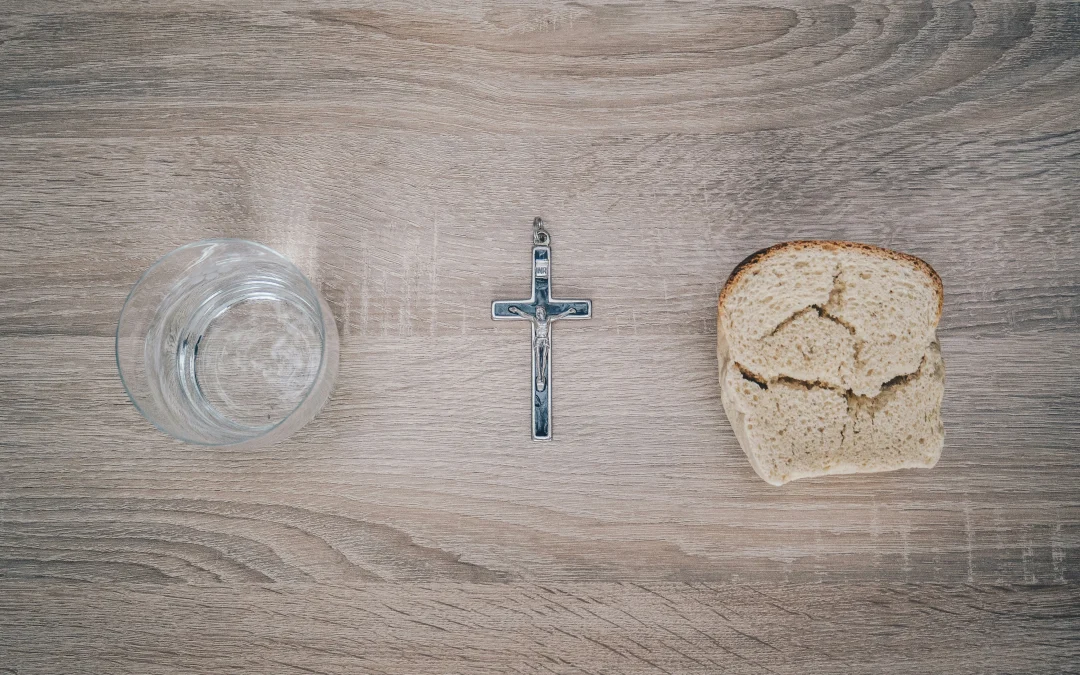For the Grieving Heart
The time following the loss of a baby is numbing and painful as you try to navigate all of the emotions that are flooding your entire being. The grieving process is complex and leaves you wondering when your heart will find healing again, when normalcy will return to your life.
Perhaps you and your spouse were the only ones who knew about the pregnancy, which may further the feelings of loneliness as you try to cope with this on your own. You attempt to put on a smile when you leave the house, but the reality is, you are broken.
It is important to give yourself time, acknowledge that this was indeed a loss no matter how far along you were, and give yourself permission to grieve. The following are practical steps and things to remember that may help with the grieving process.
10 Ways To Grieve After A Miscarriage
Pray: On the hard days, prayer may be the last thing you want to do as you wrestle with frustration and anger toward God. It may even feel as if God has abandoned you. Having a child is such a noble and good intention, why would He deny you this gift? God is with you in the silence. He is carrying you through the valley. He is pouring out His grace and mercy and only wants you to rest in His arms as He heals your broken heart.
It may be difficult to formulate any words, but you can turn to the rote prayers. Pray with your husband for healing and ask him to speak the words when you cannot. It may seem simple, but there is great power in repeating the name of Jesus. Jesus, I trust in You! Keep praying the novenas and let your fingers run over the rosary beads. Ask others to pray for you, especially your spouse, your family, your friends, and your parish community. Sit in Eucharistic Adoration and say nothing at all. Go on a silent retreat and let God do the talking.
Honor: This child was real, a created being, not just tissue or the product of conception. A baby, your baby. Name your child even if you are not sure of the gender; choose something meaningful to you. Your little one is now with our Heavenly Father gazing upon His glory, so call upon him or her to intercede for you.
Have a memorial or a burial service. Call your pastor to see if he can have a small prayer service with you and your spouse or pray the blessing after a miscarriage with you. If a procedure was done, request the remains from the hospital. Organizations such as Elizabeth Ministry offer small burial vessels.
Remember: Do something to remember your child; it can be simple, such as a bouquet of flowers on the anniversary of his or her passing, or a balloon release with your family, attaching love notes to your little one. You could also have something personalized, such as a remembrance ring or bracelet, or birthstone for their anniversary month.
At age-appropriate levels, talk about the baby with your other children; they are part of your family and a sibling to this child. Create a scrapbook for children ages one to ten who have died so that older and future siblings can remember them.
Journal: What was wrong with me? Why am I inadequate? What if my spouse blames me? Will he love me less? The questions running through your mind may seem unreasonable at times, but allow yourself to feel what you are truly feeling.
It is normal to let your mind give way to unreasonable thoughts. Writing down the thoughts and feelings that are hard to express can be very therapeutic. When you do not know who to talk to, journal. Sit in the quiet, put your guard down, and let the pen move, expressing every thought and feeling of your heart. Also try starting a gratitude page, which will help you see the blessings and light during the dark times.
Find Community: Infertility is an incredibly isolating cross, especially in Catholic circles as you try to find your place as the couple with no kids, or perhaps one or two, when all your friends are expecting number five. Know that you are not alone. There are so many other women who are suffering in silence.
Find a group on social media. Have coffee dates with other women who are going through similar experiences. Start a group in your church. You will be amazed at how many women will come forward. When pain strikes, it is easy to isolate ourselves even more because we think no one will understand. Resist the isolation and find community. Remember also that with a miscarriage or stillbirth, you do not have to tell everyone, because not every person will understand your pain. At the same time, do not feel like you can’t tell anyone.
Grow in Your Marriage: Cling to your spouse. The statistics of marriage ending in divorce due to infertility and miscarriage are frightening. Studies show that couples who experience infertility are three times more likely to divorce, and those who suffer a miscarriage are 22 percent more likely.
Men and women grieve differently, often leaving the other spouse feeling isolated. Use this time as an opportunity to draw nearer to your spouse. Make a concerted effort to talk through the emotions, coming to a deeper understanding of where each of you are and what your needs are in finding healing. When it may seem easier to retreat from your spouse, make an effort to spend time with him or her. Enjoy having more movie nights, dinners out, quiet nights in, or weekends away.
Grow in Affection: If you have children on earth, draw closer to them by cuddling and hugging them more frequently. They might see your tears during your grieving, and that is okay. But never forget your blessings.
Avoid Triggers: Struggling to feel truly excited as another friend announces she is pregnant or feeling a pit in your stomach as you scroll through social media and see yet another ultrasound picture are not reasons to feel guilty. Allow yourself time and know what you can emotionally handle. Give yourself permission to avoid triggers, such as baby showers or seeing a pregnant friend or a friend who has a baby, until you are ready. Avoiding these situations does not make you weak, but will aid in the healing process.
Seek Medical Help: After a miscarriage, stillbirth, or infant loss, it is wise to schedule an appointment with your gynecologist. It is important to follow up on blood work, which sometimes can suggest some deficiencies and the need for medicine. When you feel you are ready, there may be instances where seeking out more medical care is needed. Physicians trained in NaProTechnology can help navigate and guide you through fertility care and hormone support therapy, and perhaps assist in finding answers to help heal your body. NaProTechnology (www.naprotechnology.com, www.fertilitycare.org) was founded by a devout Catholic, Dr. Thomas Hilgers, and the care given is completely in line with Catholic teaching, as it respects the procreative process as a gift between a husband and wife while aiding in support of the woman’s natural abilities to conceive and carry a child.
Physical and Mental Health: Although it may seem like you will never feel like yourself again and you wonder when “normalcy” will set in, it is important to take care of your physical and mental health. That may mean seeking a counselor to help you talk through the grief or perhaps taking extended leave from work. Seeking out and engaging in activities that will lower your stress will also naturally help you feel peace. Going for nature walks might help ease your pain by taking your mind off your struggles. Surrounded by God’s outdoor cathedral, we begin to breathe a little easier and realize that we have basic needs in life and one of them is to just breathe. Physical exercise combined with uplifting music can also help release tension. It might be helpful to pick up a new hobby, such as learning to water color or play a musical instrument, to help cope with your grief in a calm manner. Above all, be patient and gentle with yourself, as God is carrying you at this most trying moment of your life.
This is an excerpt from Nursery of Heaven: Miscarriage, Stillbirth, and Infant Loss in the Lives of the Saints and Today’s Parents by Patrick O’Hearn and Cassie Everts. In these moving and cathartic pages, you will explore:
- The importance of being patient with yourself in recovering from your trauma
- Ways to eliminate triggers and find solace in your pain
- The essence of mourning and the significance of even the briefest life
- How to find God amid your sufferings and begin to trust again
- Ten things not to say to someone who is grieving the loss of a child
- Four ways family and friends can support those who are suffering
Along with beautiful prayers, such as “Blessing of Parents after a Miscarriage or Stillbirth” and “Order for the Naming of an Infant Who Died before Birth,” and various Scripture passages and novenas, this book provides reflections and practical wisdom for pastors, family, and friends to help those grieving the loss of a child to find healing. By journeying with others who share your grief, you will find new courage and hope as you await the joyful reunion with your child in Heaven.














